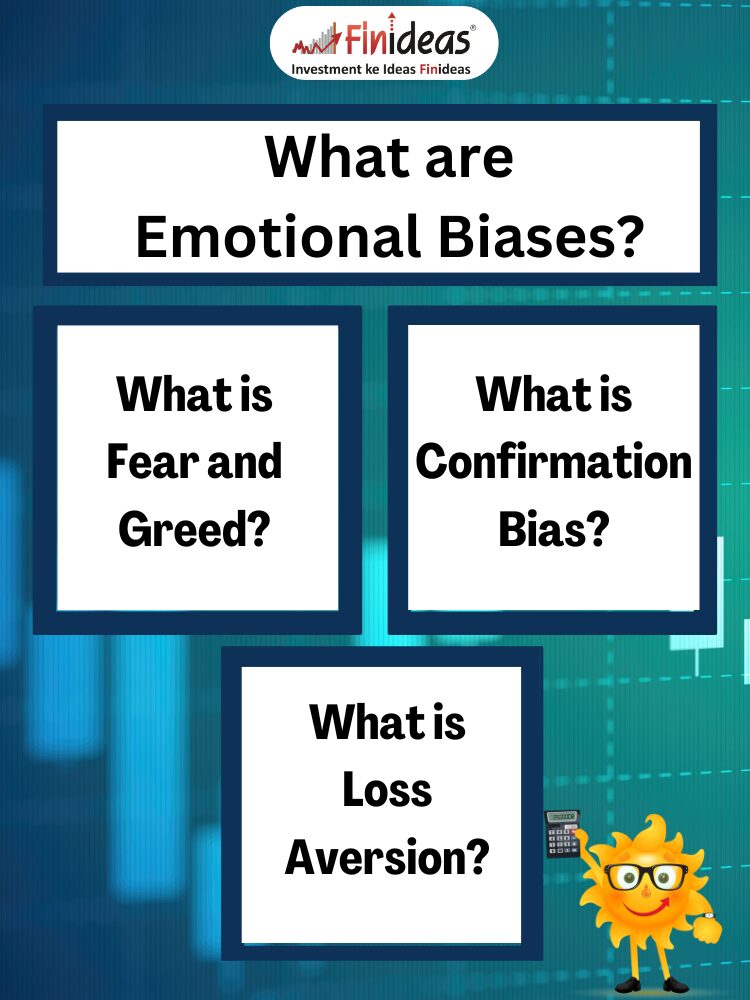The Psychology of Investing: Overcoming Emotional Biases
In the realm of finance, there’s a constant battle between rational decision-making and emotional impulses. Nowhere is this more evident than in the world of investing. While it’s easy to assume that investing is all about crunching numbers and analyzing trends, the truth is that psychology plays a significant role in shaping our investment decisions.
What are Emotional Biases?
Emotional biases are the subconscious influences that can sway investors away from making rational decisions. These biases often stem from deeply ingrained psychological tendencies that have evolved over time. In the context of investing, they can lead to irrational behavior and, ultimately, poor investment choices.
What is Fear and Greed?
Two of the most powerful emotional biases in investing are fear and greed. Fear can cause investors to panic sell during market downturns, locking in losses instead of riding out the storm. On the other hand, greed can lead to chasing hot stocks or speculative assets, often resulting in overvaluation and eventual disappointment.
What is Confirmation Bias?
Confirmation bias is another common pitfall for investors. This bias occurs when individuals seek out information that confirms their pre-existing beliefs while ignoring evidence that contradicts them. In investing, this can lead to a lack of diversification and a failure to consider alternative viewpoints, increasing the risk of significant losses.
What is Loss Aversion?
Loss aversion refers to the tendency for individuals to strongly prefer avoiding losses over acquiring gains of equal value. This bias can lead investors to hold onto losing investments for too long, hoping for a turnaround, rather than cutting their losses and reallocating their capital to more promising opportunities.
Overcoming Emotional Biases
While it’s impossible to completely eliminate emotional biases from investing, there are strategies that investors can employ to mitigate their impact.
Education and Awareness
One of the most effective ways to overcome emotional biases is through education and awareness. By understanding the psychological principles behind their decision-making, investors can learn to recognize when they are being influenced by emotions and take steps to counteract them.
Develop a Plan
Having a well-defined investment plan can help investors stay disciplined during periods of market volatility. By setting clear goals, establishing a diversified portfolio, and adhering to a predetermined strategy, investors can avoid making impulsive decisions based on emotion.
Seek Professional Advice
Working with a financial advisor can provide investors with an objective perspective and help them make more informed decisions. A qualified advisor can offer guidance tailored to an individual’s financial situation and risk tolerance, helping to navigate turbulent market conditions with confidence. You can always contact finideas for your financial investment as we have great products one of is Index Long Term Strategy , you can check that out.
Conclusion
The psychology of investing is a complex and fascinating subject that underscores the importance of understanding our own emotional biases. By acknowledging the role that emotions play in shaping our investment decisions and implementing strategies to counteract them, investors can strive to achieve greater long-term success in the markets.
What strategies have you found most effective in overcoming emotional biases in your own investment journey? Share your thoughts and experiences in the comments below!
By incorporating relevant keywords related to psychology, investing, and emotional biases, optimizing meta tags, and ensuring the content is structured for readability and engagement, this blog post can be optimized for SEO while providing valuable insights to readers interested in the psychology of investing.
Happy Investing!
This article is for education purpose only. Kindly consult with your financial advisor before doing any kind of investment.


